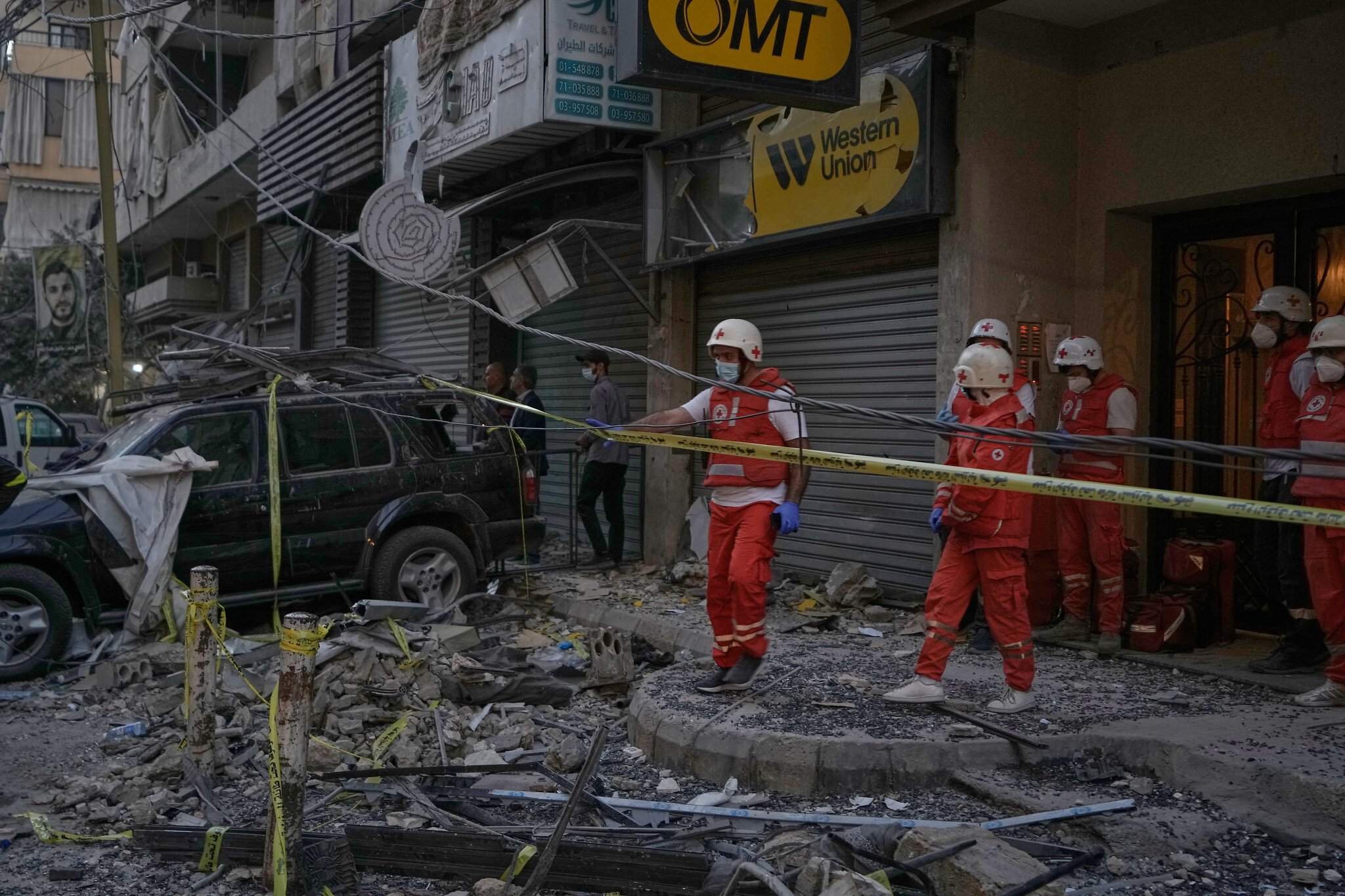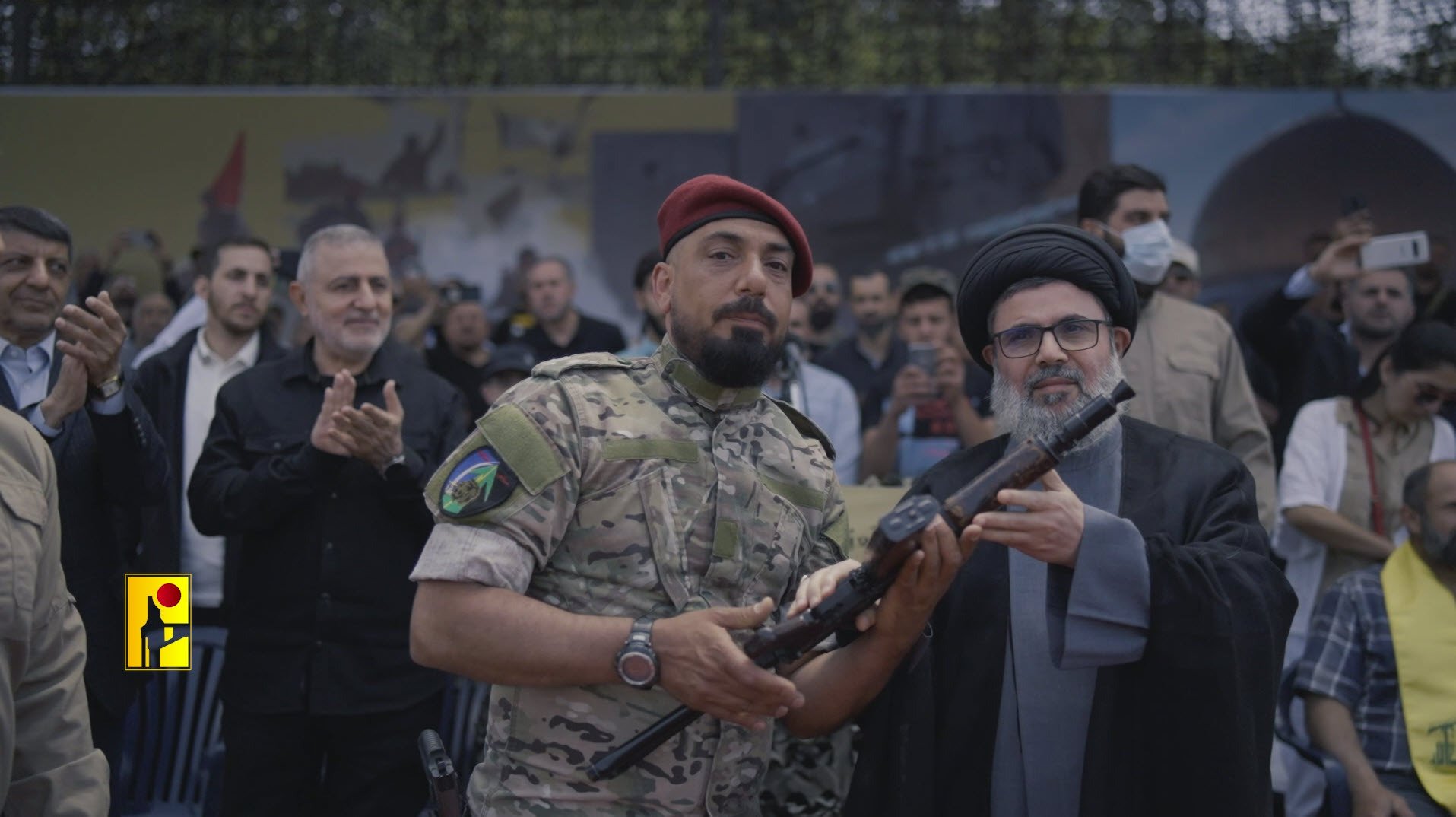Israel said on Sunday it had killed Hezbollah’s de facto chief of staff, Haytham Ali Tabatabai, in a targeted airstrike in Beirut’s southern suburb.
Tabatabai was considered second only to Secretary-General Naim Qassem in the Iran-backed terror group’s command structure. An Israeli official said the strike was successful and that he had been killed, though Jerusalem was yet to announce that publicly.
Israel has been escalating its strikes on Hezbollah in recent weeks, accusing the terror group of violating the year-old ceasefire and increasingly attempting to rebuild its capabilities, and expressing frustration at lagging Lebanese efforts to disarm the group.
The Prime Minister’s Office announced: “A short while ago, the IDF struck, in the heart of Beirut, the Hezbollah chief of staff who led the organization’s military buildup and armament efforts.”
“Prime Minister [Benjamin] Netanyahu ordered the strike on the recommendation of the defense minister and the IDF chief of staff,” the statement continued. “Israel is determined to act to achieve its goals, in any place and at any time.”
An AFP correspondent at the scene said the strike hit the third and fourth floors of a nine-story building.
Lebanon’s state NNA outlet reported three missiles were fired at the building in the Haret Hreik area, damaging vehicles and other nearby structures.
Lebanon’s health ministry reported at least one person killed in the strike, and 21 people wounded, calling it a “preliminary toll.”

The US was not given advance notice of the strike, a senior US official told Channel 12.
A second senior American official said that Washington had known for several days that Israel was planning to escalate its strikes in Lebanon, but “did not know in advance the timing, location, or target of the strike.”
The last IDF strikes on Beirut, the Lebanese capital, took place in July. Those attacks targeted Hezbollah infrastructure, and they came after evacuation warnings.
Tabatabai led Hezbollah force tasked with invading Israel
Tabatabai, born in 1968 in Beirut, was the son of a south Lebanese mother and an Iranian father. He was raised in southern Lebanon and joined the terror group in his youth.
He had been wanted by the United States since 2016, with a $5 million bounty for information on him.

Tabatabai previously commanded Hezbollah’s elite Radwan Force, which was tasked with preparations to invade Israel. Israeli officials say Hezbollah had long planned an October 7-style terror assault on northern Israel border communities.
According to the US Department of State, he also commanded Hezbollah’s special forces in Syria and Yemen.
In 2015, Israel attempted to assassinate Tabatabai in southern Syria, in a strike that killed Jihad Mughniyeh, the son of Imad Mughniyeh, a senior Hezbollah commander killed in Damascus in 2008.
Tabatabai was promoted in the terror group in late 2024, after the IDF eliminated most of Hezbollah’s top leadership. Former chief of staff Fuad Shukr was killed in a strike on Beirut in July 2024. His replacement was swiftly killed as well.
Lebanon calls for international action
Lebanese President Joseph Aoun called on the international community to intervene firmly to stop Israeli attacks on the country.
In a statement, Aoun said Lebanon “reiterates its call to the international community to assume its responsibility and intervene firmly and seriously to stop the attacks on Lebanon and its people.”

In Israel, however, Defense Minister Israel Katz vowed the country would continue to take action against those who threaten it.
“We will continue to act forcefully to prevent any threat to the residents of the north and the State of Israel,” Katz said in a statement released by his office.
“Whoever raises a hand against Israel — that hand will be cut off,” Katz continued, adding that, together with Netanyahu, he is “determined to continue the policy of maximum enforcement in Lebanon and everywhere else.”
He said he will not allow Israel to return to the situation that existed prior to October 7, 2023, with Hezbollah a constant looming threat on Israel’s northern border.

